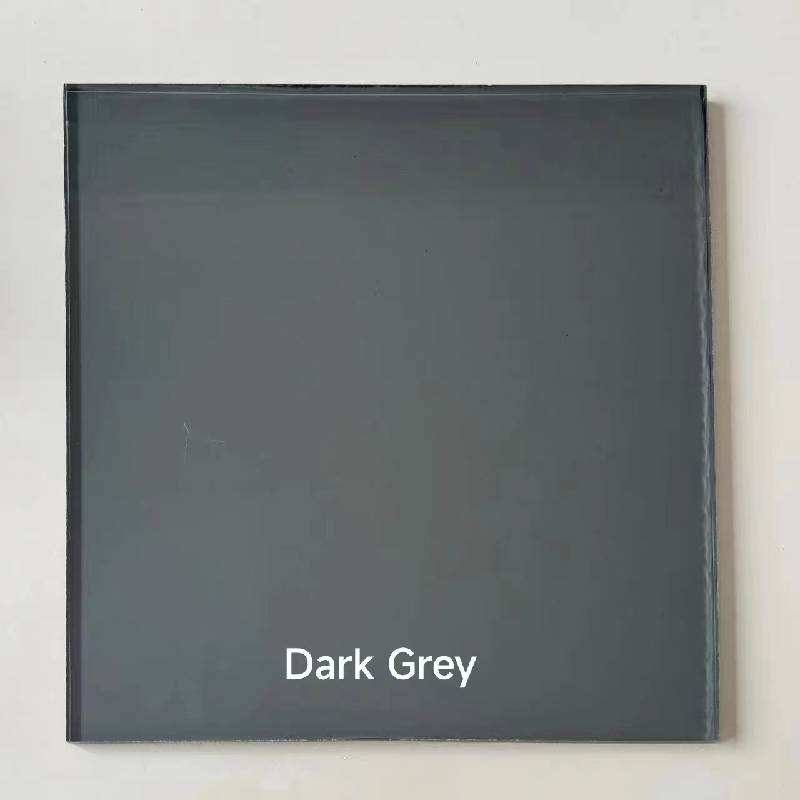

The Versatility of 5mm Float Glass An Essential Material in Modern Architecture
Float glass, a fundamental material in architecture and construction, has garnered widespread acclaim for its clarity, smoothness, and versatility. Among the various thicknesses available, 5mm float glass stands out as a popular choice for a multitude of applications. This article explores the characteristics, benefits, and applications of 5mm float glass, emphasizing its importance in modern design and architecture.
What is Float Glass?
Float glass is produced through a unique manufacturing process where molten glass is floated on molten tin, creating a flat, smooth surface. This method results in glass that is not only uniform in thickness but also remarkably clear and free from imperfections. The thickness of float glass can range from 2mm to 19mm, with 5mm being a widely sought-after option for both residential and commercial projects.
Characteristics of 5mm Float Glass
5mm float glass possesses several defining characteristics that make it suitable for various applications. One of its most notable features is its optical clarity. The almost flawless surface allows for excellent light transmittance, making it ideal for windows and facades, where natural light is desired without distortion.
Moreover, 5mm float glass is sufficiently strong to resist impacts in many situations. While it may not be as robust as thicker variants, it provides adequate protection for interior spaces, furniture, and decorative elements. The moderate thickness strikes a balance between weight and strength, making it manageable for installation without compromising structural integrity.
Benefits of Using 5mm Float Glass

One of the primary benefits of 5mm float glass is its affordability
. Compared to thicker glass types, 5mm float glass offers a cost-effective solution for projects without sacrificing quality or aesthetic appeal. This economic advantage makes it a favorite for builders and architects looking to maintain budget constraints while achieving modern design goals.Additionally, the ease of fabrication is another significant plus. 5mm float glass can be easily cut, polished, and shaped to fit various applications, allowing for greater design flexibility. Whether used for glass doors, partitions, or decorative panels, its versatility supports a wide range of creative possibilities.
The environmental impact of float glass production has also improved in recent years. Manufacturers are increasingly adopting sustainable practices, such as recycling glass and minimizing energy consumption during production. Choosing 5mm float glass can therefore contribute to greener building practices, aligning with the growing demand for sustainable materials in architecture.
Applications in Architecture and Design
5mm float glass is utilized in numerous architectural applications. It is commonly used in residential and commercial windows, allowing for natural light to illuminate spaces while providing unobstructed views. Moreover, this type of glass is frequently used in glass doors, shower enclosures, and interior partitions, contributing to open, airy designs that enhance the flow of light.
In addition to functional use, 5mm float glass also plays an essential role in decorative applications. It can be incorporated into tables, shelving units, and art installations, offering a sleek and modern aesthetic that complements various interior styles. This versatility allows designers to experiment with geometric shapes and innovative layouts, further pushing the boundaries of contemporary architecture.
Conclusion
In conclusion, 5mm float glass is a remarkable material that continues to play a vital role in modern architecture and design. Its combination of clarity, strength, affordability, and versatility makes it an ideal choice for various applications. As architects and designers seek innovative ways to create inviting, functional spaces, 5mm float glass remains a staple material that meets the demands of both aesthetics and sustainability. Whether illuminating a residential home or enhancing the grandeur of a commercial facility, the use of 5mm float glass is sure to stand the test of time in the world of contemporary architecture.